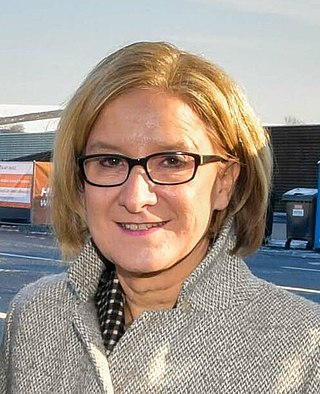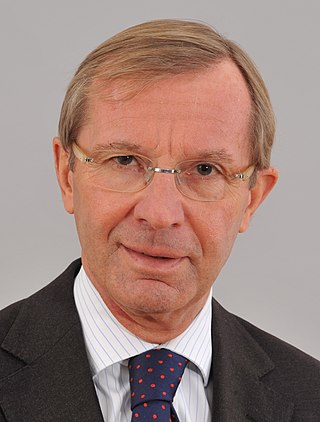
Legislative elections were held in Austria on 28 September 2008 to elect the 24th National Council, the lower house of Austria's bicameral parliament. The snap election was called after Austrian People's Party (ÖVP) withdrew from the ruling grand coalition with the Social Democratic Party of Austria (SPÖ) in July. Due to dissatisfaction with the governing parties, the opposition and minor parties were expected to make significant gains. Opinion polling indicated that up to seven parties could potentially win seats.

The 2009 Upper Austrian state election was held on 27 September 2009 to elect the members of the Landtag of Upper Austria.

The 2003 Upper Austrian state election was held on 28 September 2003 to elect the members of the Landtag of Upper Austria.

The 2010 Viennese state election was held on 10 October 2010 to elect the members of the Gemeinderat and Landtag of Vienna.

The 2013 Tyrolean state election was held on 28 April 2013 to elect the members of the Landtag of Tyrol.

The 2013 Salzburg state election was held on 5 May 2013 to elect the members of the Landtag of Salzburg.

The 2015 Styrian state election was held on 31 May 2015 to elect the members of the Landtag of Styria.

Legislative elections were held in Austria on 29 September 2019 to elect the 27th National Council, the lower house of Austria's bicameral parliament. The snap election was called in the wake of the Ibiza affair in May, which caused the resignation of Vice Chancellor Heinz-Christian Strache and the collapse of the governing coalition of the Austrian People's Party (ÖVP) and Freedom Party of Austria (FPÖ). The government subsequently lost a motion of no confidence in parliament, before ÖVP Chancellor Sebastian Kurz was replaced by non-partisan Brigitte Bierlein on an interim basis.

The 2018 Salzburg state election was held on 22 April 2018 to elect the members of the Landtag of Salzburg.

The 2019 Styrian state election was held on 24 November 2019 to elect the members of the Landtag of Styria.

The 2018 Tyrolean state election was held on 25 February 2018 to elect the members of the Landtag of Tyrol.

The 2015 Upper Austrian state election was held on 27 September 2015 to elect the members of the Landtag of Upper Austria.

The 2020 Viennese state election was held on 11 October 2020 to elect the members of the Gemeinderat and Landtag of Vienna. The outgoing government was a coalition of the Social Democratic Party (SPÖ) and The Greens.

The 2009 Salzburg state election was held on 1 March 2009 to elect the members of the Landtag of Salzburg.

The 2004 Salzburg state election was held on 7 March 2004 to elect the members of the Landtag of Salzburg.

The 2003 Tyrolean state election was held on 28 September 2003 to elect the members of the Landtag of Tyrol.

The 2021 Upper Austrian state election was held on 26 September 2021 to elect the members of the Landtag of Upper Austria.

The 2022 Tyrolean state election was held on 25 September 2022 to elect the members of the Landtag of Tyrol. Incumbent Governor Günther Platter of the Austrian People's Party (ÖVP) retired at the election; Anton Mattle was the party's lead candidate.

The 2023 Lower Austrian state election was held on 29 January 2023 to elect the members of the Landtag of Lower Austria.

The 2023 Salzburg state election took place in the Austrian state of Salzburg on 23 April 2023. Incumbent Governor of Salzburg, Wilfried Haslauer of the Austrian People's Party, ran for re-election. Following the election, a coalition between ÖVP and FPÖ was agreed on, the first of its kind in Salzburg. It was elected by the newly convened Landtag and sworn into office on 14 June 2023.


















